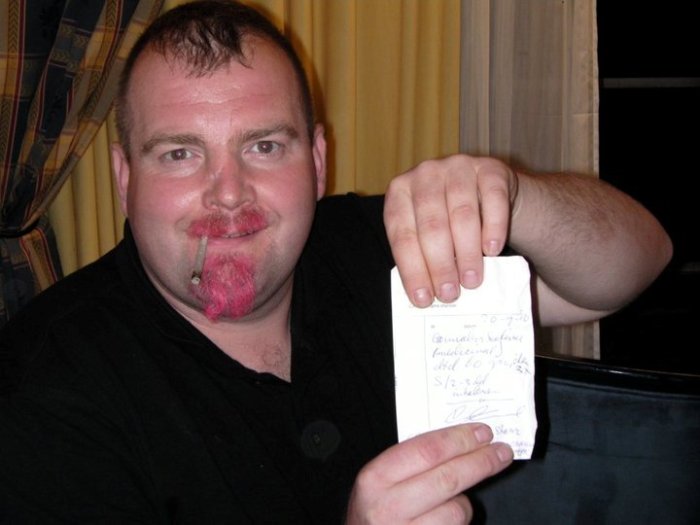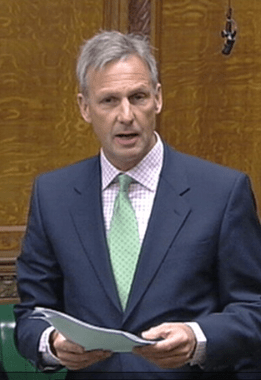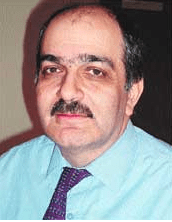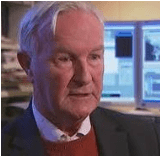Posts Tagged ‘health authority’
Back To The Future Of The NHS
 I have grave concerns about the government’s NHS reforms. I feel like it’s Groundhog Day.
I have grave concerns about the government’s NHS reforms. I feel like it’s Groundhog Day.
I was deeply involved in the last major health service reforms back in the 1990s. I am hearing exactly the same ideas, phrases and promises as we heard then. Haven’t we done this all before?
When the “internal market” was introduced and the first NHS Trusts were “founded”, the idea of marketing was introduced to the NHS for the first time. I saw the opportunity, organised a conference at the QEII conference centre and built a nice business, thank you very much, for several years as an expert in the field. I was an advisor to several health authorities and a number of the new NHS trusts. I undertook marketing and communications audits, ran training courses and I made something of a specialty of designing, writing and producing annual reports. I learned a lot and I felt I contributed a lot. Why is it all being done again?
 Marketing is a perfect description of the way the health service should work. It is the management process responsible for anticipating, identifying and satisfying customer needs efficiently. The 1990s NHS model was that “purchasers”, health authorities and GP fundholders, would buy services from “providers”, hospitals and community health services. “Purchasing” was later renamed “commissioning” to reflect how complex the task is. It’s about understanding what services are required and making complex choices as well as actually contracting for them.
Marketing is a perfect description of the way the health service should work. It is the management process responsible for anticipating, identifying and satisfying customer needs efficiently. The 1990s NHS model was that “purchasers”, health authorities and GP fundholders, would buy services from “providers”, hospitals and community health services. “Purchasing” was later renamed “commissioning” to reflect how complex the task is. It’s about understanding what services are required and making complex choices as well as actually contracting for them.
Strategic Health Authorities (SHAs) were always a redundant tier of bureaucracy in my view. District Health Authorities (DHAs) were to be the principal commissioners but the plan was that GP fundholders would eventually take over most of it with DHAs becoming centres of expertise rather than administration. Then there was a rather messy fudge between GPs and community health services and we ended up with Primary Care Trusts (PCTs).
There is a huge amount of expertise required in commissioning. The complexity of the tasks involved – understanding, assessing, testing, planning, choosing, contracting and much more, is enormous. GPs will have to buy in that expertise which will build a bureaucracy which we will call – what? We will have gone round in a circle.
One of the biggest mistakes made about the NHS is the endless stream of attacks on managers. Almost all the problems that the NHS has and that people complain about are management problems. NHS managers have a hugely demanding and thankless task for which they are regularly pilloried and censured. They are, actually, crucial to an effective NHS, just as much as the clinicians.
So now we are to have “Foundation Trusts” and GP commissioning. It is the same thing, yet again, under a slightly different name. The NHS is not broken. It is, in fact, greatly improved. It doesn’t need fixing.
We do not need more reform. We need some adjustments. There have been great achievements on waiting times. Now, we need to shift the emphasis towards outcomes. We need targets on quality rather than quantity. It’s a tweak rather than a revolution.
Written by Peter Reynolds
January 21, 2011 at 12:15 am
Posted in Consumerism, Health, Politics
Tagged with annual report, clinician, commissioning, communications, conference, Foundation Trust, fundholder, government, GP, Groundhog Day, health authority, health service, hospital.marketing, manager, NHS, PCT, Primary Care Trust, provider, purchaser, reform, waiting times
European Parliament – Public Hearing On Cannabis Regulation
 The European Coalition for Just and Effective Drug Policies (ENCOD) has organised a public hearing on cannabis regulation at the European Parliament on 8th December 2010. See here for full details.
The European Coalition for Just and Effective Drug Policies (ENCOD) has organised a public hearing on cannabis regulation at the European Parliament on 8th December 2010. See here for full details.
In March 2009, the European Commission published the “Report on Global Illicit Drug Markets 1998 – 2007” . This concludes that current policies of prohibition are failing in their main objective to reduce the demand and supply of illicit drugs. Current policies may also be a crucial factor in generating and increasing harm to individual drug users, their direct surroundings and society at large.
According to the European Monitoring Centre for Drugs and Drug Addiction (EMCDDA) in its 2010 annual report, Europe faces new challenges posed by changes in drug supply and use. The report also highlights the increased usage of cocaine, heroin and of a record number of new synthetic drugs.
ENCOD says that prohibitionist policies have failed to tackle the issues of drugs and drug use effectively and it is time to investigate alternative approaches. European authorities must produce a thorough impact assessment of the costs of the current policy of prohibition and the economic benefits of decriminalisation and, as a start, the regulation of the cannabis market.
It has been calculated that cannabis regulation would save billions in law enforcement costs, foster harm reduction, weaken the illegal cartels, and provide the opportunity to generate considerable income from taxes. The examples of California, Spain, The Netherlands and Portugal lead the way.
Victor Hamilton, the well known cannabis campaigner and former Legalise Cannabis Alliance (LCA) parliamentary candidate, liaises as a UK representative with ENCOD. He has submitted the following letter to ENCOD in advance of the public hearing on the current state of cannabis in Britain.
Dear Joep,
Thank you for the invitation to attend the hearing on 8th December 2010. I am afraid that both my health and the expense involved prevent me from attending.However, as you know, ending the prohibition of cannabis and encouraging more and better use of the plant in all its forms is my main concern. Cannabis offers many benefits medicinally, recreationally, spiritually and, as hemp, in ecologically sound fuel, construction materials, paper and plastics alternatives. Prohibition of cannabis is a far greater crime than any perpetrated by those who use it. It is a scandal and a sad litany of wasted opportunity and resources.
In the UK, based on research I have done and confirmed by the Independent Drug Monitoring Unit (IDMU), a legalise, regulate and tax regime could produce between £4 – 6 billion pa in new tax revenue.
For the benefit of the hearing, please allow me to update you on the present situation in Britain.
Calls For Decriminalisation
There have been calls for a relaxation of cannabis laws from a number of sources: The Bar Council, the British Medical Association, the Royal College of Physicians, The Lancet, Professor Roger Pertwee, Professor David Nutt and the Association of Chief Police Officers. The new coalition government’s “Your Freedom” website was swamped with calls for legalisation.
Reaction To Propositon 19
The cannabis community was eager with anticipation for the Proposition 19 vote in California, despite a dearth of media attention. Even the BBC, obliged under its charter to provide balanced coverage, found very little time for an issue that affects at least six million Britons. Strangely, the best of the lot was The Daily Telegraph, formerly known as the most conservative paper, it told us more about what was happening than any of the others.
The result was a disappointment and reminded us how our own campaigning has suffered from internal divisions and a lack of focus. Nevertheless. legalisation seems inevitable in the US, even if only at state level, within the next few years.
Formation of British Medicinal Cannabis Register
This exciting initiative to create a database of medicinal users in Britain was announced only in November. I was honoured to be invited to sit on the BMCR council as a medicinal user representative. Other members of the council include very eminent individuals such as Baroness Meacher, the MP Paul Flynn, Matthew Atha of IDMU and Dr Malcolm Vandenburg, the pre-eminent expert witness on drugs.
The real coup though was the announcement of Professor Leslie Iversen as a council member. Professor Iversen is the government’s chief scientific advisor on drugs. Yes that’s the British government which continues to state that cannabis has “no medicinal benefits”.
Subversion of Schengen Agreement
Several British medicinal users travelled to Holland for prescriptions from a doctor believing that their medicine was then protected by the Schengen Agreement. At first the Home Office agreed but then changed its position to say that British residents are not covered. The ridiculous situation now is that any non-UK resident can bring prescribed medicinal cannabis into Britain and use it without restriction. A UK resident cannot.
Increasing Evidence Of Medicinal Benefits
There is a never ending flow of information from all around the world on the extraordinary power of cannabis as a medicine. Facebook groups, blogs and organisations such as the LCA and UKCIA keep spreading the news. Particularly strong evidence has been revealed for cannabinoids as a treatment for Alzheimer’s, head, neck, breast and prostate cancer, fibromyalgia, ADHD and migraine. The mainstream media seem only interested in scandal and scare stories. They publish news about vastly expensive new pharmaceutical products but not about cannabis cures.
Confusion At The Home Office
Understandably, the British government’s position looks increasingly absurd. The Home Office veers between describing cannabis as very harmful, harmful, dangerous, extremely dangerous and changes its story every time it is challenged.
Approval of Sativex
Sativex won welcome approval from the medicines regulator as a treatment for spasticity in MS. Despite the fact that Sativex is nothing more than a tincture of herbal cannabis, the government now maintains that “cannabis has no medicinal benefits in herbal form”. Sativex is approximately eight times the cost of herbal medicinal cannabis and many health authorities are refusing to fund it.
New UK Drug Strategy
The government is to announce a new drugs strategy in December. There is expected to be a shift in emphasis towards healthcare interventions rather than criminal sanctions but no move away from prohibition. The more liberal views expressed by both David Cameron and Nick Clegg over the last 10 years seem to have changed now they have come to power.
Joep, I hope this is helpful and informative for the hearing and for you and your colleagues.
Victor Hamilton
Written by Peter Reynolds
November 27, 2010 at 2:48 pm
Posted in Business, Consumerism, Health, Politics
Tagged with ADHD, Alzheimer's, Association of Chief Police Officers, Baroness Meacher, BBC, blog, BMA, BMCR, British Medical Association, British Medicinal Cannabis Register, California, cancer, cannabinoid, cannabis, cocaine, David Cameron, decriminalisation, Dr Malcolm Vandenburg, drugs, drugstrategy, EMCDDA, ENCOD, Europe, European Coalition for Just and Effective Drug Policies, European Commission, European Monitoring Centre for Drugs and Drug Addiction, European Parliament, Facebook, fibromyalgia, government, harm, health authority, hemp, heroin, Holland, Home Office, IDMU, Independent Drug Monitoring Unit, LCA, legalisation, Legalise Cannabis Alliance, Matthew Atha, medicinal cannabis, migraine, MS, Nick Clegg, parliamentary candidate, Paul Flynn, Portugal, prescription, Professor David Nutt, Professor Leslie Iversen, Professor Roger Pertwee, prohibition, Proposition 19, regulation, Royal College Of Physicians, Sativex, Schengen Agreement, Spain, The Bar Council, The Daily Telegraph, The Lancet, The Netherlands, tincture, UKCIA, US, Victor Hamilton, Your Freedom
Legal Medicinal Cannabis In Britain
Last week Jim Starr flew into Bristol Airport from Amsterdam carrying 80 grammes of herbal cannabis as prescribed for him by a Dutch doctor. That’s just under three ounces of dried flower heads. He was carrying it in a parcel about the size of a telephone directory.
There was no one at customs, even though Jim went through the red channel and had telephoned ahead to advise the airport that he was bringing the cannabis in. He waited, even looked around for someone, anyone, but there was no one to be seen at all. He wanted to declare what he had with him. He’s never wanted to break the law. He knew that he was risking confiscation of the cannabis, possibly even arrest but the coast wasn’t just clear, it was deserted. The authorities had evidently decided that in their “war on drugs”, this time, discretion was definitely the better part of valour. They were in full scale retreat.
Jim had confirmed to the airport that he had the necessary paperwork to prove it was prescribed medicinal cannabis. His doctor had told him that he was protected under Article 75 of the Schengen Agreement which states “persons may carry the narcotic drugs and psychotropic substances that are necessary for their medical treatment provided that, at any check, they produce a certificate issued or authenticated by a competent authority”
Of course, even then, it didn’t stop the journey being a nerve wracking and tense experience. Now, safely at home in Dorchester with his family, Jim understands from the Home Office that he is entitled to bring in the cannabis as prescribed for him by his Dutch doctor. He can bring in up to three month’s supply at a time if he carries it on his person. Otherwise he has to apply for an import licence and have it shipped to a UK pharmacist.
Jim is 36 and is married to Emma, with whom he has two children. Originally from Birmingham, he was a very active man in full time employment until in 1999 he was diagnosed with a degenerative disease of the spine. In 2003 he was involved in a road accident and suffered terrible spinal injuries. His life seemed hopeless. The cocktail of powerful drugs he was prescribed, including morphine, were debilitating in themselves. He couldn’t face a future in which he was turned into a zombie, unable to enjoy any sort of decent life with his wife and children. He admits frankly that he was suicidal.
One day in 2004, Jim was upstairs in bed in so much pain and despair that he could barely move. A friend called round to see him and offered him a joint. Half an hour later Jim made it downstairs for the first time in three weeks. Suddenly he had hope and the possibility of a future with his family.
Life since then has been a constant game of cat and mouse with the police and drug dealers. Apart from risking arrest and even prison, Jim has also been in danger of being robbed or ripped off by dealers. He’s never wanted to break the law. He told his doctor the relief that cannabis provided and as soon as Sativex became available, even before it was officially licensed, his doctor prescribed it for him. Unfortunately, the very next day she rang to say that because of licensing and regulation problems she wouldn’t be able to prescribe it again. In fact, Jim did manage to get another prescription for Sativex but again it was withdrawn, this time because his health authority refused to fund it.
Jim has been an active campaigner for the legalisation of cannabis ever since. He has organised a series of marches, protests and petitions in Dorchester, Weymouth and even Downing Street. Over the last seven years, three MPs, Oliver Letwin, Jim Knight and Richard Drax, have written various letters in support of him. He is a distinctive figure in his wheelchair with his dyed beard which has earned him the nickname “Pinky”. Perhaps he has been a little too high profile for the Dorset police who he accuses of persecuting him. Unable to obtain Sativex or afford the prices and risks of dealers, Jim enlisted the help of a friend to grow his own medicine. Inevitably, in May 2009 the police arrived and Jim was arrested.
In August this year at Dorchester Crown Court Jim was given a two year conditional discharge for growing cannabis. He is now pursuing a complaint against the police alleging brutal treatment during his arrest. Other complications, allegedly at the police’s behest, have led to the DVLA revoking his driving licence although he has never been arrested, charged, convicted or even stopped on suspicion of driving under the influence.
Jim has become an avid recorder of everything. He uses mobile phones, video cameras and audio recorders to retain evidence of every contact with the authorities. He has a video recording of an officer saying to his wife “Look luvvy, whatever he grows up there from now on is up to him. We promise it don’t bother us”. Foolishly, he took the officer at his word. Three weeks after receiving his conditional discharge the police arrived again.
There was no provision for transporting him to the police station in his wheelchair. The officers were warned not to lift him by his arms because of his spinal condition. They wrenched him out of his chair by gripping his shoulders and underpants causing anal bleeding due to an existing condition. He was refused a doctor at the station. There was no provision for disabled people, even for his special toilet needs. He was refused access to any of his prescribed medication or even his specialist anti pressure sore mattresses.
The following day he attended hospital and was diagnosed with torn shoulder muscles. In fact, his spinal column is so delicate that any movement could potentially paralyse him. This is the basis of all his high profile campaigning and must be well known to the police. Jim now faces another charge of cultivating cannabis and a possible prison sentence.
The trip to Holland was a last resort, only made possible by the generosity of a friend. The Dutch doctor was horrified at the range of highly toxic prescription medicines given to Jim and prescribed two grammes per day of medicinal herbal cannabis. He told Jim that he shouldn’t be using Sativex as the alcohol in its solution was like pouring petrol on a fire, given his medical conditions.
So at last, Jim seems to have the medicine he needs. He will have to continue to rely on the generosity of friends to pay for it. He is applying for a Home Office licence for the cannabis to be imported to a local pharmacist who can then dispense it to him. He will continue to campaign for the right to grow his own for free. The costs of cultivation at home are minimal compared to the rigmarole of importing from Holland or the massive “Big Pharma” cost of Sativex.
Jim is not the first person to get the medicine they need in this way but he is the first to go public about it. Many tens of thousands may now wish to follow his example. Most European countries and 15 US states already regulate the provision of medicinal cannabis. Surely it is time for the government to consider reform of what looks increasingly like an absurd and cruel law.
Written by Peter Reynolds
October 1, 2010 at 4:36 pm
Posted in Consumerism, Health, Politics
Tagged with airport, alcohol, Amsterdam, arrest, Big Pharma, Birmingham, Bristol, brutal treatment, campaigner, cannabis, cat and mouse, chrged, complaint, conditional discharge, convicted, cultivating cannabis, customs, debilitating, degenerative disease, disabled, doctor, Dorchester, Dorchester Crown Court, Dorset police, Downing Street, driving licence, driving under the influence, drug dealer, DVLA, European, evidence, government, growing cannabis, health authority, herbal cannabis, Holland, Home Office, hope, hospital, Howard Marks, import licence, Jim Knight, Jim Starr, legalisation, licensed, march, medication, medicinal cannabis, medicine, morphine, Mr Nice, narcotic, Oliver Letwin, paralyse, persecuting, petition, pharmacist, Pinky, police, prescribed, prescription, prison, prison sentence, protest, psychotropic, regulation, Richard Drax, ripped off, road accident, robbed, Sativex, Schengen Agreement, spinal column, spinal condition, spine, suicidal, suspicion, US, video camera, war on drugs, Weymouth, wheelchair, zombie
My MP, Richard Drax, To Write To David Cameron On Drugs Policy
Today I met with my MP, Richard Drax. He was just as sickeningly handsome and charming as I expected him to be! So I showed him no mercy and bombarded him with my opinions for a good half an hour.
I realised afterwards that my favourite maxim “less is more” would have been a better strategy. Nevertheless, he did offer to write to David Cameron on my behalf on drugs policy and seemed genuinely sympathetic to some of the points I made.
I have just sent him a lengthy email in confirmation which I reproduce below. If anyone wishes to use this as a template for a letter or email to their own MP, please feel free to do so.
******
Dear Richard,
Thank you so much for your time today. I very much enjoyed meeting you. As I said, I came with opinions not problems. I am grateful to you for listening to me.
I realise that I made the classic mistake of bombarding you with far too much information and not giving you time to absorb any. I hope I may correct that error by summarising here what we talked about.
1. Gary McKinnon. Thank heavens that progress seems to have been made on this. The idea of an “extradition” treaty that provides for someone to be sent to the USA for trial on an alleged crime committed here is iniquitous. It’s particularly unfair in McKinnon’s case as he suffers from Asperger’s syndrome. You pointed out to me that similar dangers exist with the new European arrest warrant.
I would urge you to do everything possible to ensure that if Gary McKinnon is to be tried, it should take place in the UK.
2. Ian Tomlinson. In my view the failure to prosecute the policeman who assaulted him is an outrage and Keir Starmer’s reasons entirely inadequate. Now that the credibility of the pathologist in the case has been destroyed by a GMC panel, Starmer should at least reconsider and hopefully reverse his decision.
References here:
http://pjroldblog.wordpress.com/2010/08/31/killer-cop-harwood-must-be-charged/
http://pjroldblog.wordpress.com/2010/07/24/keir-starmer-the-next-lord-widgery/
I would urge you to press for a re-consideration of the decision not to bring charges. If no criminal charges are brought, at the very least the disciplinary hearing should be held in public as the rules allow. The Tomlinson family are entitled to justice.
3. Drugs policy. You very kindly agreed to write to David Cameron on my behalf. I am very concerned at the conduct of the Home Office at present and particularly James Brokenshire, the Minister for Crime Prevention who is causing great damage to both the coalition governemnt and the Tory party by promoting ideas and policies that contradict virtually all expert opinion, including the government’s own scientific advisers. He also seems to be completely at odds with the calls for drug law reform which both David Cameron and Nick Clegg have made consistently over the last 10 years.
This is not a peripheral or secondary issue. According to Baroness Meacher in the House of Lords on 15th June 2010, “There is no more obvious waste than the £19 billion annual cost of the UK’s war on drugs”.
There is a huge amount of reference material on this subject on my blog:
http://pjroldblog.wordpress.com/?s=drugs
I would also refer you to the Transform Drug Policy Foundation which has highly detailed and almost universally acclaimed proposals for drug regulation:
Virtually all experts agree that the “war on drugs” has failed. In exactly the same way as alcohol prohibition in the US led to a massive increase in crime and violence, so drug prohibition has created an illegal market said to be worth £350 billion per year. It has also financed civil war in Latin America for 25 years and is the principal source of finance for Al Qaeda and the Taliban in Afghanistan. Our soldiers are dying every day because of the illegal trade in opiates. Why don’t we just buy up the whole crop for the next 10 years? It would be much cheaper in both cash and lives than the Afghan war.
Virtually all experts agree that regulation would be a better solution. I have distilled the following five point plan from everything that I have read and learned over more than 30 years:
1. An end to oppression of drug users (at least 10 million UK citizens)
2. Removal from the criminal law of any offence for possession and/or social supply
3. Fact and evidence-based policy, information and regulation
4. Re-direction of law enforcement resources against real criminals
5. Treat problematic drug use as a health issue
Five years ago, while campaigning for the Tory party leadership, David Cameron called for “fresh thinking and a new approach” towards drugs policy and said that it would be “disappointing if radical options on the law on cannabis were not looked at”. Nick Clegg has promised to repeal “illiberal, intrusive and unnecessary” laws and to stop “making ordinary people criminals”. There can be no better example of this than the laws against personal use and cultivation of cannabis, particularly for medicinal reasons. The coalition government’s new Your Freedom website has been inundated with proposals to legalise cannabis and to end the futile war on drugs. In July a poll carried out for the LibDems showed 70% of people in favour of legalising cannabis.
The Home Office and James Brokenshire are completely out of touch with expert and public opinion as well as the declared views of both the Prime Minister and the Deputy Prime Minister.
In my view, regulation means tighter control on the most dangerous drugs such as heroin, cocaine and alcohol and lighter regulation on relatively harmless substances like cannabis and ecstasy.
There is also the very important question of medicinal cannabis. The discovery of the endocannabinoid system in 1998 has led to an ever-escalating volume of evidence of the medicinal value of cannabis. In June the MHRA approved Sativex as an MS medicine in the UK. It is a whole plant extract yet presently, the Home Office refuses to consider a regulated system of the plant itself for medicinal purposes. This is completely irrational and absurd. The House Of Lords scientific committee recommended such a system should be introduced 12 years ago. Medicinal cannabis is available and regulated throughout almost all of Europe, Israel and 14 states in the USA (with 12 more in the planning stage). The UK stands almost alone in its obstinate refusal even to consider such a system.
Already this is leading to quite obscene injustices where patients have been prescribed Sativex by their doctor but their health authority has refused to fund it and patients are then facing criminal prosecution for cultivating their own plants. There is a case of exactly this going on in the Dorchester Crown Court at present and the CPS insists it is in the public interest to prosecute!
Thank you once again for listening to me Richard. I hope these notes are useful in composing your letter to David Cameron and I look forward to hearing from you in due course.
Kind regards,
Peter Reynolds
Written by Peter Reynolds
September 1, 2010 at 8:33 pm
Tagged with absurd, Afghanistan, Al Qaeda, alcohol, Asperger's syndrome, assaulted, Baroness Meacher, cannabis, charming, civil war, coalition, cocaine, contradict, CPS, credibility, crime, criminal, crop, cultivating, cultivation, danger, David Cameron, Deputy Prime Minister, disciplinary, Dorchester Crown Court, drug, drug user, drugs policy, ecstasy, Europe, European arrest warrant, evidence-based, expert opinion, extradition, Gary Mckinnon, GMC, government, handsome, health authority, heroin, Home Office, House Of Lords, Ian Tomlinson, illegal, illiberal, inadequate, iniquitous, intrusive, irrational, Israel, James Brokenshire, justice, Keir Starmer, Latin America, law enforcement, law reform, leadership, less is more, LibDem, medicinal cannabis, Minister for Crime Prevention, MP, Nick Clegg, obscene injustice, obstinate, opiate, opinion, oppression, out of touch, outrage, pathologist, patient, plant, policeman, policies, possession, prime minister, prohibition, prosecute, public interest, public opinion, radical, reconsider, refusal, regulation, resource, Richard Drax, Sativex, scientific adviser, scientific committee, social supply, Taliban, thinking, Tory party, Transform Drug Policy Foundation, trial, UK, USA, violence, war, war on drugs, website, Your Freedom
“Outrageous Scaremongering” Over Cannabis
Last October, 36-year old Julie Ryan was found dead in bed by her three children, now aged 14, 13 and 8. At a coroner’s inquest in Oldham last week, pathologist Dr Sami Titi said “The direct cause of her death was cardiac arrest because of a history of smoking cannabis”.
Julie’s family claims that this is not true, that Julie’s cannabis use has been blamed because the Royal Oldham hospital failed to treat her properly. In Britain, there has only been one previous occasion when a death has been attributed to cannabis. In 2004, Lee Maisey, 36 of Pembrokeshire, who smoked half a dozen “joints” a day, was found dead on his living room floor after complaining of a headache.
At the inquest in Oldham, the coroner, Simon Nelson, was said to be surprised at the pathologist’s story and questioned him closely. Dr Titi insisted that “smoking of cannabis is well known to have a negative impact on the heart and can cause heart attacks in young people”. The coroner said that in 15 years he had never heard a pathologist so confident that cannabis could be fatal. He recorded a narrative verdict of “death from cardiovascular complications induced by cannabis smoking”.
Julie’s brother, Kevin Ryan, says that the pathologist’s remarks are “outrageous scaremongering”. Her mother, Linda, is bewildered by events. As planned, Julie’s children had stayed with her while the inquest was taking place. Now they have returned home to the furore of this extraordinary verdict and are extremely distressed.
Julie had visited the Royal Oldham hospital several times complaining of chest pains but been sent away with a diagnosis of heartburn. The post mortem examination revealed she had a severely enlarged heart and had suffered a previous heart attack which had not been diagnosed. Family sources said “It’s a cover up. Cannabis doesn’t kill. They made a big mistake.” Mary Burrows, Julie’s cousin, who was very close to her, said she preferred to smoke cannabis rather than have a drink and that “she was a wonderful mother and her kids miss her so much”.
Dr Mark Eckersley, a local Manchester doctor, said “More and more pressure is being piled on medical professionals to propagate this type of untruth by the powers that be.” He said doctors need to maintain credibility with the community and that “this type of nonsense makes my blood boil”.
 A spokesman for the Royal Oldham hospital said “Miss Ryan died from a heart attack and cardiovascular problems. Our thoughts and sympathy go to her family.”
A spokesman for the Royal Oldham hospital said “Miss Ryan died from a heart attack and cardiovascular problems. Our thoughts and sympathy go to her family.”
On 2nd November in California, Proposition 19 is expected to permit the personal use of cannabis for the state’s 28 million adults. As a result, new tax revenues of $1.4 billion are anticipated, up to 110,000 new jobs and a boost of up to $18 billion to the state’s economy from spin-offs such as coffee shops and tourism.
In America, any health concerns about the plant are far outweighed by health benefits. Medical cannabis is already regulated in 14 states with another 12 in the planning stage. In Britain, Sativex, a whole plant extract of cannabis, was recently authorised as a treatment for MS. It costs about eight times what medical cannabis costs in America, Holland, Spain, Israel and very shortly Germany, where there is a fully regulated supply chain. In Britain, despite a House Of Lords Scientific Committee recommendation, the government refuses to consider such a move. Many patients whose doctors have prescribed Sativex have been denied funding from their health authority. In some of these cases, criminal prosecutions have been brought against them for cultivating their own plants.
 A spokesman for GW Pharmaceuticals, developers of Sativex, said “The therapeutic ratio for cannabis is so high that it is virtually impossible to ingest a fatal dose”.
A spokesman for GW Pharmaceuticals, developers of Sativex, said “The therapeutic ratio for cannabis is so high that it is virtually impossible to ingest a fatal dose”.
Professor David Nutt was sacked as chairman of the Home Office’s Advisory Council on the Misuse of Drugs last year after claiming that cannabis was less harmful than alcohol and tobacco. His successor, Professor Les Iversen, also maintains that cannabis has been “incorrectly” called dangerous and says it is one of the “safer recreational drugs”.
On Friday, Professor Nutt said cannabis “seems to cause much less harm than alcohol and that banning the plant is “unjust and therefore undemocratic”. He added: “The previous government’s policy to deter cannabis use by forceful policing increased convictions for cannabis possession from 88,000 in 2004 to 160,000 in 2008. As well as ruining many lives through getting a criminal record, this added massive costs to taxpayers in extra policing and prison costs.”
Dr Sami Titi, the pathologist, was unavailable for comment and did not respond to emails. It has not been possible to identify any scientific support for his conclusions.
Julie Ryan’s family is left bemused and uncertain by this verdict. Three children are without a mother and confused about contradictory messages. The 13 year old has been posting on websites about her concerns. Meanwhile, the Public Accounts Committee and the National Audit Office have criticised the government for basing drugs policy on opinion rather than evidence. James Brokenshire, the Home Office Minister, in direct contradiction to his own advisers, continues with the story that cannabis is “extremely harmful”.
Both David Cameron and Nick Clegg are on record over the last 10 years as consistently calling for reform in drug policy. The Your Freedom website has been overwhelmed with requests for evidence based regulation of drugs and the legalisation of cannabis but the government is riding roughshod over this public outcry. A consultation document on a new drugs strategy was issued just over a week ago but it seems meaningless and dishonest as all the big decisions have already been taken. Cannabis campaigners, working on behalf of six million regular users in the UK, are outraged at what they see as hypocrisy, misinformation and regressive government action.
Dr Mark Eckersley, exasperated and concerned at the pathologist’s evidence said “This is simply not true. Hearing this story is more likely to cause a heart attack than the ingestion of any cannabinoid”.
Written by Peter Reynolds
August 31, 2010 at 2:17 pm
Tagged with adviser, Advisory Council on the Misuse of Drugs, alcohol, America, banning, bemused, bewildered, Britain, California, cannabinoid, cannabis, cardiac arrest, cardiovascular, cause of death, chest pain, children, coffee shop, complications, concerened, concern, consultation, contradiction, contradictory, conviction, coroner, coroner's inquest, cost, cover up, criminal record, criminalprosecution, criticised, cultivating, dangerous, David Cameron, death, diagnosis, dishonest, distressed, doctor, Dr Mark Eckersley, Dr Sami Titi, drug policy, drugs policy, drugs strategy, economy, enlarged heart, evidence, exasperated, extraordinary, family, fatal, fatal dose, furore, Germany, government, GW Pharmaceuticals, harmful, health, health authority, heartburn, Holland, Home Office, House Of Lords, hypocrisy, impossible, incorrectly, Israel, James Brokenshire, joint, Julie Ryan, Kevin Ryan, Lee Maisey, legalisation, makes my blood boil, Manchester, Mary Burrows, meaningless, medical cannabis, medical professional, message, minister, misinformation, mistake, mother, MS, narrative verdict, National Audit Office, new jobs, Nick Clegg, nonsense, Oldham, Oldham Royal Hospital, opinion, ourageous, outrage, overwhelmed, pathologist, Pembrokeshire, personal use, plant, policing, post mortem, prescribed, pressure, prison, Professor David Nutt, Professor Les Iversen, Professor Nutt, Proposition 19, Public Accounts Committee, public outcry, recommendation, recreational drug, reform, regressive, regulated, roughshod, ruining, Sativex, scaremongering, scientific committee, Simon Nelson, smoking, Spain, supply chain, surprised, sympathy, taxpayer, taxrevenue, the powers that be, therapeutic ratio, tobacco, tourism, uncertain, undemocratic, unjust, untruth, website, whole plant extract, YourFreedom











